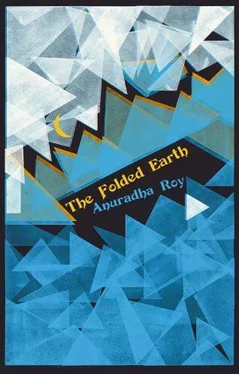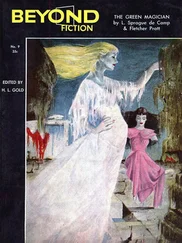* * *
“I have to go every afternoon to Sa’ab’s hotel,” Kundan’s second letter said.
They do not like eating hotel food. They like daalroti-sabzi, food from home. They like it hot. So every morning I cook it and then pack it all in a special tiffin carrier that keeps it hot. Then I cycle with it to the hotel. It has been built very recently. Your eyes would be dazzled by the hotel. It is like a magic palace. I am not allowed to enter it. I have to go to the back entrance and hand the food to someone. But when I pass the main door I can see how shiny everything is. It smells different. Music comes out of there when people go in and out. I saw a pool of totally blue water. People swim in the water, with hardly any clothes. You would laugh to see them. Mostly the people are dressed like kings and queens. But none of them look as beautiful as hill people. I think of my parents in Siliguri. But more than that I think of Ranikhet. Send me something from the forest.
Your friend.
When I finished reading a letter, Charu would ask me to read it again, sometimes three times, and listen carefully, frowning, as if trying to memorise it. Then she would take the letter from me and hide it in her clothing. Charu’s living quarters were so cramped she could not find a place to hide the letters there. Ama, Puran, and she had two small rooms, one of which was partitioned in half: one half was their kitchen, the other had bright blue walls and a black-and-white T.V. covered with a crocheted cloth. A vase with pink plastic roses stood on top of the T.V. and on the wall was a picture Charu had painted, of purple and blue flowers that might have been irises. There were two chairs and a bed and a trunk made into a table. Through patterned plastic curtains you could glimpse the second room, which had a bed. Of course, Charu did not have her own room or cupboard; it was sufficient if she found the same corner every night to sleep in. After two near misses, when Ama very nearly lighted upon her letters, Charu now put them in a plastic bag and tucked them into a rafter in the cowshed, along with her magpie feather and bead necklace.
It was a problem finding the time for her lessons. We were both busy. Charu was forever rushing back and forth between her chores at home and her part-time job at the factory. Even when she managed to come to my house, she had to leave if her grandmother yelled for her: “Where did you put the spade?” “Run to Mall Road and buy some oil.” “Who do you think will put in the hens?” “God knows where the girl is, or her dog. Charu!”
I had to divide my time between taking classes at St Hilda’s and overseeing jam making, bottling, and accounting at the factory. May and June were our most crowded months: all the soft fruit of summer — plums, peaches, apricots — arrived from distant villages, baskets and crates of them together, and they had to be dealt with at once. Some days, neither Charu nor I got home from the factory till after dark. At times it was late afternoon when I reached Diwan Sahib for my newspaper session and on the rare days that he decided to work on his book with me, I was lucky if I returned in time for the sunset on my veranda.
I would sit there with a cup of tea, waiting for Charu, watching the blues and greens of the hills darken range after range. When the farthest ranges were smudged into shadows, and the flying squirrels began skittering up the deodar trees, Charu would appear, bounding down the slope, not bothering to look where her feet fell, tossing from hand to hand two warm potatoes her grandmother had baked in the embers of their cooking fire. They were fluffy and tender inside, steaming with stored up warmth, the charred skin smoky and delicious. Since I hardly ever managed more than an egg and bread or instant noodles when I ate at home, I was as grateful for the potatoes as Charu was for her lessons.
She came for her lessons when her grandmother was unlikely to need her, and she thought she had covered her tracks well, but Ama was too shrewd a woman for Charu’s efforts at subterfuge to go unnoticed. Although she could not put her finger on it, she knew something about her granddaughter was different. She had sensed currents of gossip too, from which she was being excluded: she had heard Charu’s name in conversations between drugged-out Janaki and the clerk’s wife, which dried up the minute Ama came within earshot. She smelled a rat and so came one day to my house and settled on the bottom stair of the veranda to find out where the smell might lead. “Did you hear,” she asked me as she sat, “of Rosemount Hotel’s cook?”
I knew that the cook was probably not why she had come to me, but I said no, I had not.
“He was riding pillion on a scooter when he was hit by a speeding car — a Delhi car, of course,” Ama said. “He fell from the scooter. But thought he was fine. And then — then he looked down and he had no right leg! It had been sliced clean off. There it was, still in shoe and sock, lying in the pine needles. They wrapped it in a shirt and carried it to the hospital with them, but nobody could stitch it back on.”
“That Puran,” she began next, still not ready to come to the point. “He’s as senseless about his deer as about everything else. Lunatic fool giggles and whispers to it like it’s his lover, and feeds it all the grain I store for the hens. Between his deer and Charu’s useless dog, I am losing all the money I earn from selling milk.”
I murmured and waited. After a brief pause, unable to hold herself back any longer, she demanded, “Why is the girl with you all the time? People are talking.”
“She is learning to read,” I said. “I have told her she must.”
“She missed school all those years when I was paying for her, what is this new hobby for?”
“It’s never too late,” I said.
“Why?” Ama said, narrowing her eyes. “I never learnt to read a word, and has it been a problem for me?”
Before I could argue, she appeared to reconsider and said, “No, it’s a good thing. She won’t be as helpless as her poor dead mother. She won’t let a man get away with treating her badly. But don’t teach her too much. Girls who study too much are no good for anything — she won’t get a husband and she’ll have all sorts of silly ideas about herself.” She continued in a heavy voice, “I’m growing old. She is such a worry. I have to find her a groom, but my son is such a drunk — everyone knows it and stays away. These last few months his face has gone black — did you see him when he came yesterday? Just comes to me to demand money, as if I grow rupee notes in the field. As thin as a stick and lies about all day in a daze. That woman he’s taken up with is a born witch.” She shook her head. “How long will I live?” she said. “Every day I feel closer to death. My heart feels as if it has slid to my stomach sometimes. And who will look after Charu if I am dead? Sometimes I think it’s a curse that she’s pretty. How is an old woman to keep her out of trouble?”
Her wrinkles deepened and darkened. Her fingers were calloused, dry, and chunky like small yams from overwork. The strap on one of her slippers was held together by a safety pin. I felt a deep pang of guilt and worry at what I was doing behind Ama’s back. I said, “You mustn’t worry about her. I’ll look after her.”
Ama shook her head and smiled in the ironical, all-knowing manner she adopted with me at times. Usually it annoyed me, but this time I thought her attitude was justified; even to myself, my words sounded like a tall claim. How was I planning to look after Charu?
In a rush, as if I had planned it all along — although the thought had not crossed my mind till that minute — I said, “She’s my responsibility too, I’ve known her since she was twelve. And … everything I own will be hers.” It was suddenly self-evident: who better to inherit my savings bank account, the bits of jewellery my mother had given me over the years, and the furniture I had collected? I had been told that my chest of drawers, bought second-hand from people moving house four years ago, was an antique.
Читать дальше












